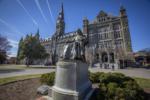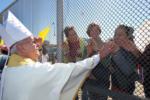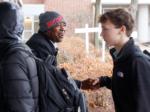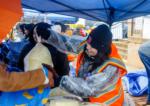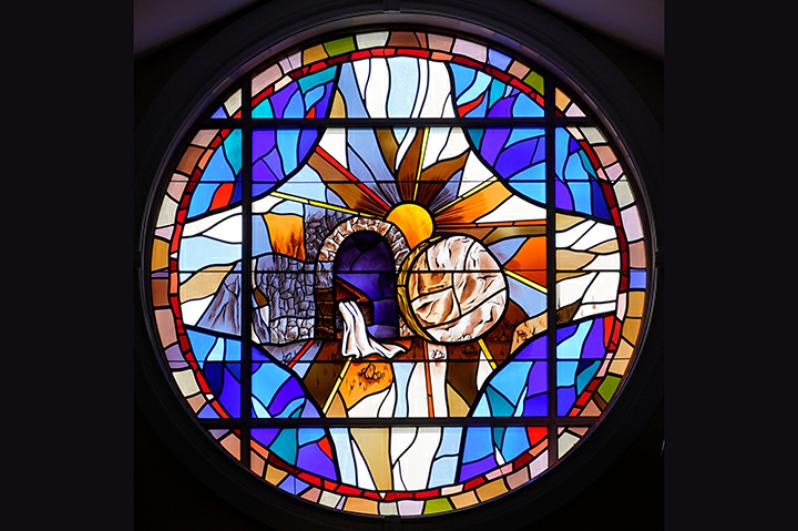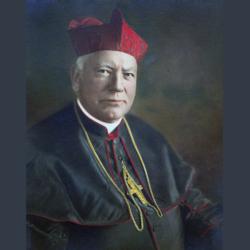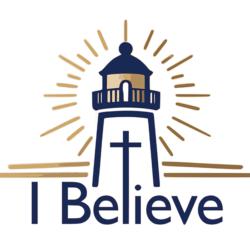Scripture Reflection for March 31, 2024, Easter Sunday
Acts 10:34a, 37-43
Ps 118:1-2, 16-17, 22-23
Col 3:1-4
Jn 20:1-9
"Did you hear...?"
In our modern information-saturated age, those three little words say a lot. They sum up so much of how we live.
Face it: We are bombarded incessantly by news. Our phones buzz, cable news squawks, social media chirps and pings. There's a lot going on out there. What are we missing? Almost nothing. It can be impossible to shield ourselves from the onslaught of stuff.
All of which should make us hear the Good News of Easter -- really, the greatest news in human history -- in a different way. What we realize, as we hear the proclamation of Christ's Resurrection, is that we are hearing a phenomenal story being told, news being spread, truth being shared, person to person.
And the message couldn't be more clear.
Keep it going. Tell the story.
The reading from Acts sets the stage, with Peter standing before the world with an urgent announcement. He wastes no time and cuts to the chase: "You know what has happened all over Judea . . ."
From that moment, he proceeds to tell the story of the Christ in broad, bold outline -- from John the Baptist all the way to Jesus' death and resurrection.
Then the Gospel account of the Resurrection that we hear, likewise, gives us one solitary figure, Mary of Magdala, spreading the news: "She ran and went to Simon Peter and to the other disciple whom Jesus loved, and told them, 'They have taken the Lord from the tomb . . .'"
And so, it starts. We see the very beginning of a story that will be told countless times, across every century, in every language imaginable -- a story that began with an empty tomb in Judea and has spread now to every corner of the globe, in sprawling cities and humble villages, in grand cathedrals and huts that have dirt for a floor. We are only the latest to hear the story that is continuing to change the world.
This weekend, we hear how it began.
Intriguingly, the Gospel we hear at the Easter Vigil, from Mark, notes that the first news of the Resurrection came from an anonymous angel -- serving, in a way, as a beautiful bookend to the Annunciation. What does the angel say? His directive is simple and clear: "Go and tell his disciples."
Don't stay where you are.
Don't keep this to yourself.
Go. Keep this going. Tell the story.
Now, over 2,000 years later, we need to continue what others began. We need to go and tell the story -- a story of miracles and suffering, of sacrifice and love, of redemption and hope.
Easter morning, as we stagger out of church with "Alleluias" ringing in our ears, maybe the great question we need to ask ourselves is: how well are we doing that?
If we are to tell the story, what are we doing to tell it?
The long, dry weeks of Lent served as a reminder to us of what the Christian story is about; fundamentally, it is about loving, and that loving is expressed by giving, to both God and to our neighbor.
That, I believe, is how we tell the story -- how we pass it on to others and encourage them to pass it on, as well.
We do it with words and with gestures, but also with our lives. We do it by bearing witness to what Jesus taught and how he lived and how he died, and by standing in affirmation of that glorious Good News not just on Easter Sunday, but every day of our lives.
One of the breathtaking messages of Easter, conveyed in the Scripture we hear, is this: the greatest story ever told is one we are charged with telling and retelling every day.
The angel said it. Mary of Magdala listened and did what he said. It's up to us to celebrate that and rejoice in what it all means -- and continue what they began. The Gospel needs witness to keep it going.
We can't keep it to ourselves.
So, go. Tell the story.
- Deacon Greg Kandra is an award-winning author and journalist, and creator of the blog, "The Deacon's Bench."





